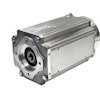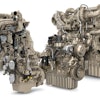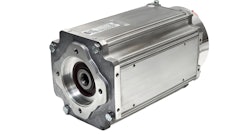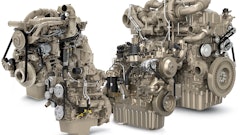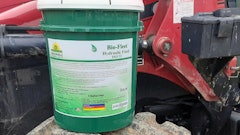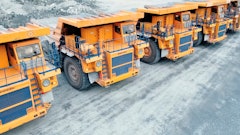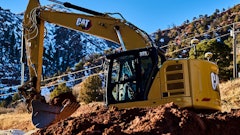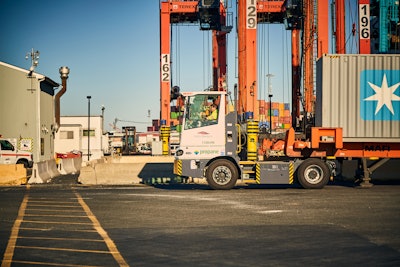
For many years, diesel has reigned supreme in the world of off-highway vehicles and equipment, but as fleet operators continue to adapt to rising costs across industries as well as tightening long-term emissions standards, alternative fuels are becoming more prevalent.
From electric to biodiesel to hydrogen, various alternative fuel types offer benefits and trade-off, particularly when sustainability goals, application and duty-cycles are considered. Compared with other fuel types, propane has seen particular success in various off-highway applications. Because propane offers significant emissions reductions and cost savings without sacrificing versatility or reliability, more fleet managers are adopting it as their energy source of choice.
Versatility Across Equipment
Propane’s flexibility is one of its most significant advantages. It can be used in a wide range of equipment, like light- and medium-duty trucks, terminal tractors, forklifts, off-grid EV charging, certain construction equipment and even generators. Propane’s use in generators makes it particularly useful on jobsites. Compact, localized propane-powered generators can power various pieces of electric equipment and give a jobsite added resiliency during electrical power disruptions and outages.
Cleaner Fuel, Lower Emissions
Compared with conventional gasoline or diesel, propane is cleaner and offers significantly lower emissions. Today’s propane engines are 90% cleaner than Environmental Protection Agency (EPA) standards and, depending on the application, they can reduce harmful NOx emissions by up to 99% compared to diesel. They’re also certified to the optional ultra-low NOx emissions standard as defined by the California Air Resources Board (CARB) for heavy-duty engines with 0.2 grams per brake horsepower.
These benefits make propane especially well-suited for applications where air quality is a concern or where emissions regulations are strict. Furthermore, propane is nontoxic and won’t contaminate groundwater or soil — which can be particularly important in off-road applications used in sensitive environments like agriculture or ports.
The emergence of renewable propane is making propane even cleaner. Derived from sustainable feedstocks such as plant and vegetable oils, animal fats and used cooking oil, renewable propane has the same properties and performance as conventional propane but reduces carbon intensity significantly. For fleet owners already operating propane equipment, renewable propane can be used in any existing engines without the need for modifications or upgrades.
Affordable, Predictable Fuel Costs
Another major strength of propane is its affordability, which benefits operations’ bottom lines. Especially as oil prices fluctuate, many fleet owners report a savings of up to 50% compared to gasoline or diesel. The vast majority of the U.S. propane supply is also produced in the U.S., so prices don’t fluctuate as sharply as other fuels. Because of this, fleet owners are more easily able to manage fuel supply and budgets to meet year-end objectives.
In many cases, customers can work with their local propane supplier to lock in a set price and custom propane delivery schedule in exchange for a mutually beneficial fuel contract. This adds another layer of protection against fluctuating fuel prices.
Lower Maintenance Costs
Most fleet owners see a reduction in maintenance-related expenses with propane due to a lower frequency of engine issues that often arise with conventional fuels.
Today’s diesel engines require expensive aftermarket emissions treatment systems with diesel emissions fluid (DEF) and diesel particulate filters (DPFs) to remain compliant. Meanwhile, gasoline can degrade over time and create buildup that can contribute to faster wear of engine parts.
Propane, however, doesn’t face these issues. Because propane is a clean energy source, it doesn’t create the same carbon build-up often seen in gasoline and diesel engines — meaning the potential for longer engine life with fewer maintenance issues. Overall, this helps to reduce vehicle downtime and costs on parts and labor.
Cost Effective, Scalable Infrastructure
The infrastructure required for propane refueling is simple, customizable, and inexpensive with several options available to meet the needs of any fleet.
Most fleet owners opt for private on-site refueling stations, which can be installed in a convenient location and scaled as the fleet grows. In some cases, propane suppliers may provide the infrastructure at little to no cost in exchange for a fuel contract.
These private stations can be installed directly on job sites or yards at a fraction of the cost of EV charging stations or compressed natural gas systems. The cost to install propane refueling infrastructure for up to 50 vehicles is, on average, $50,000 to $100,000. Comparatively, the cost to install similar CNG infrastructure can cost more than $2 million and EV infrastructure ranges from $200,000 to $500,000.
If a fleet owner doesn’t have space for on-site refueling, they can choose a mobile refueling service where their propane supplier brings a bobtail to deliver fuel directly to vehicles. This option allows fleet managers to transition to propane immediately without investing in permanent equipment.
Some fleet owners also install temporary infrastructure on jobsites or while they’re in the process of building permanent infrastructure. Fleet owners should check with their propane supplier to see if mobile refueling or temporary infrastructure options are available in their area.
Considering Propane for Your Fleet
While no single fuel is perfect for every situation, there’s a compelling case to be made for propane in off-highway applications. Not only does propane lower emissions, it offers significant cost savings on fuel, maintenance, and refueling infrastructure. It’s for these reasons propane offers the lowest total cost-of-ownership of any energy source when you factor in the cost of a new vehicle, fuel, fluids, maintenance and repairs over the lifetime of the vehicle.
As fleet owners balance the pressures of costs, reliability and sustainability, propane offers a well-balanced solution that’s both forward-thinking and grounded in proven performance.
